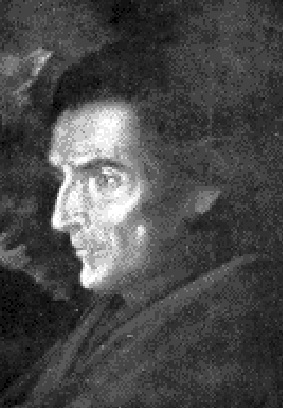Difference between revisions of "Acosta, José de (c.1539-1600)"
Tao alexis (talk | contribs) |
Tao alexis (talk | contribs) m (Tao alexis moved page Acosta, José de to Acosta, José de (c.1539-1600)) |
||
| (4 intermediate revisions by the same user not shown) | |||
| Line 1: | Line 1: | ||
| − | '''Jose de Acosta''' | + | [[File:José de Acosta.jpg|right|245px|thumb|]] |
| + | '''Jose de Acosta''' was a Spanish historian, cosmographer and poet born in Medina del Campo, Spain. In 1570 he wrote of the ill effects of crossing over the Andes, related to the atmosphere being too thin for human needs — a variety of altitude sickness now referred to as ''Acosta's disease''. He was sent to Peru as a missionary in 1571, he served as professor of theology at Ocana, second Jesuit provincial college of Peru from 1576 to 1581. Thereafter, he returned as director of the Jesuit college at Salamanca, Spain. | ||
While in Peru, Acosta wrote of many works of religious content, among them a catechism in Quichua and Aymara, the first book printed in Peru (after his departure in 1583). His sympathy with the natives, as well as his understanding of their character and their problems, was shown in another volume published in Spain in 1589. | While in Peru, Acosta wrote of many works of religious content, among them a catechism in Quichua and Aymara, the first book printed in Peru (after his departure in 1583). His sympathy with the natives, as well as his understanding of their character and their problems, was shown in another volume published in Spain in 1589. | ||
Latest revision as of 18:11, 11 May 2023
Jose de Acosta was a Spanish historian, cosmographer and poet born in Medina del Campo, Spain. In 1570 he wrote of the ill effects of crossing over the Andes, related to the atmosphere being too thin for human needs — a variety of altitude sickness now referred to as Acosta's disease. He was sent to Peru as a missionary in 1571, he served as professor of theology at Ocana, second Jesuit provincial college of Peru from 1576 to 1581. Thereafter, he returned as director of the Jesuit college at Salamanca, Spain.
While in Peru, Acosta wrote of many works of religious content, among them a catechism in Quichua and Aymara, the first book printed in Peru (after his departure in 1583). His sympathy with the natives, as well as his understanding of their character and their problems, was shown in another volume published in Spain in 1589.
Acosta's most important work was his Historia natural y moral de las Indias, which was given high praise by Alexander von Humboldt, and translated into many languages. The English translation was made in 1604. Acosta died in Salamanca.
